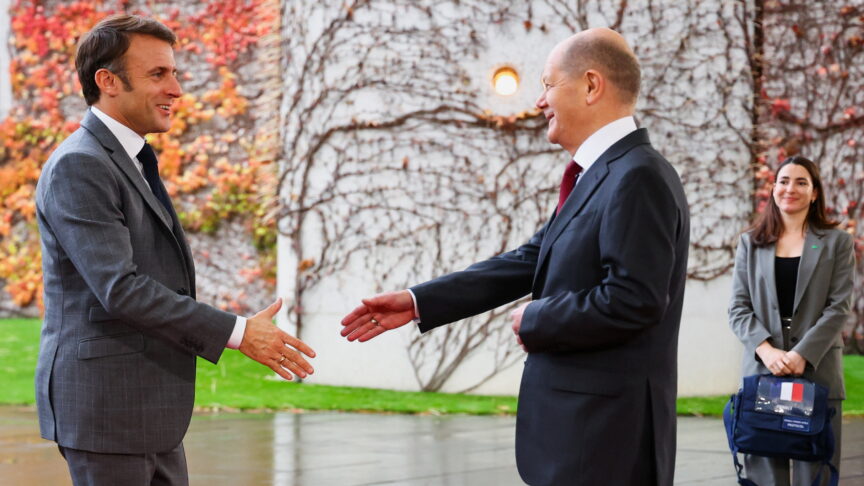
The Maghreb maze: Harmonising divergent European policies in North Africa
The Maghreb policies of the four most influential EU member states are diverging – but this fragmentation hinders the EU’s long-term interests in the region

The Maghreb policies of the four most influential EU member states are diverging – but this fragmentation hinders the EU’s long-term interests in the region
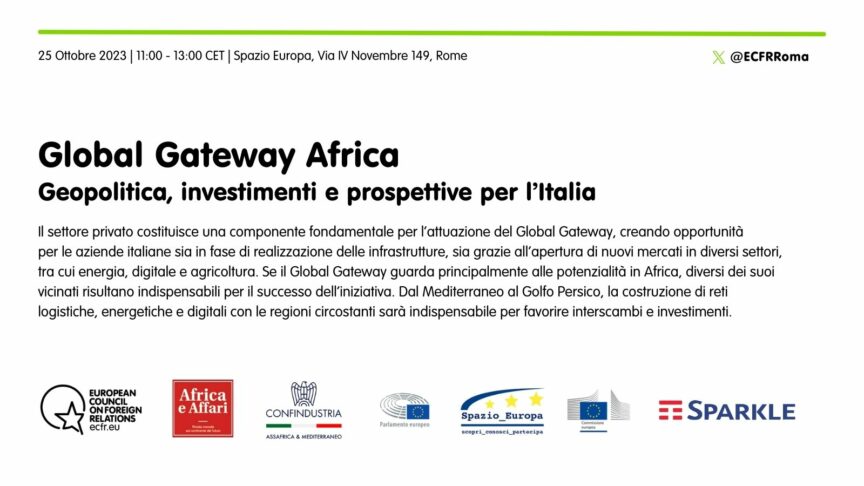
L’evento si concentrerà su come Il settore privato costituisca una componente fondamentale per l’attuazione del Global Gateway e sulle opportunità che questo può rappresentare

The disasters that have struck Morocco and Libya in recent days demand an urgent response. Europeans have an imperative to act – but should bear in mind the political complexities underlying the provision of aid
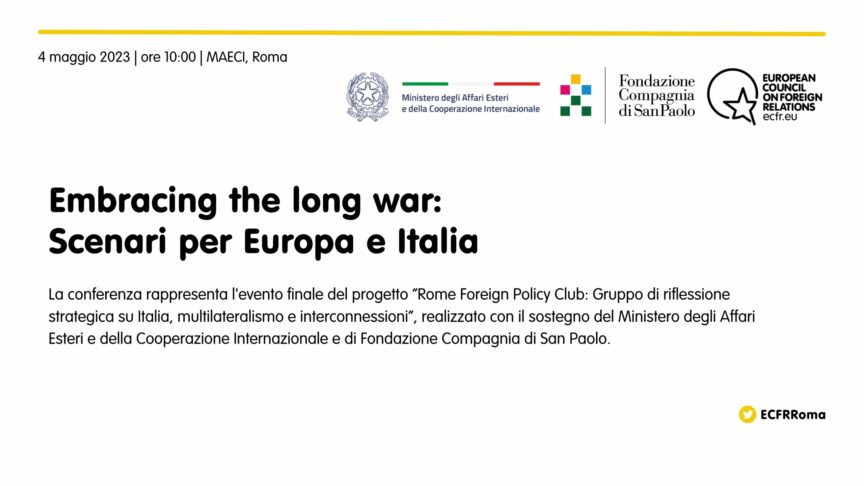
La conferenza è l’evento finale del progetto “Rome Foreign Policy Club: Gruppo di riflessione strategica su Italia, multilateralismo e interconnessioni”, con focus sugli scenari globali e per il Mediterraneo allargato dopo l’invasione dell’Ucraina
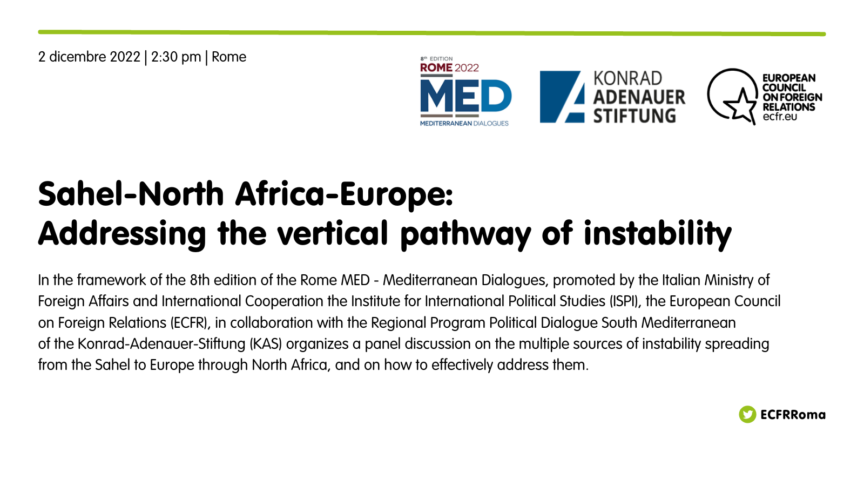
A panel discussion organized in collaboration with the Regional Program Political Dialogue South Mediterranean of the Konrad-Adenauer-Stiftung (KAS) in the framework of the 8th edition of the Rome MED – Mediterranean Dialogues, promoted by the Italian Ministry of Foreign Affairs and International Cooperation the Institute for International Political Studies (ISPI)
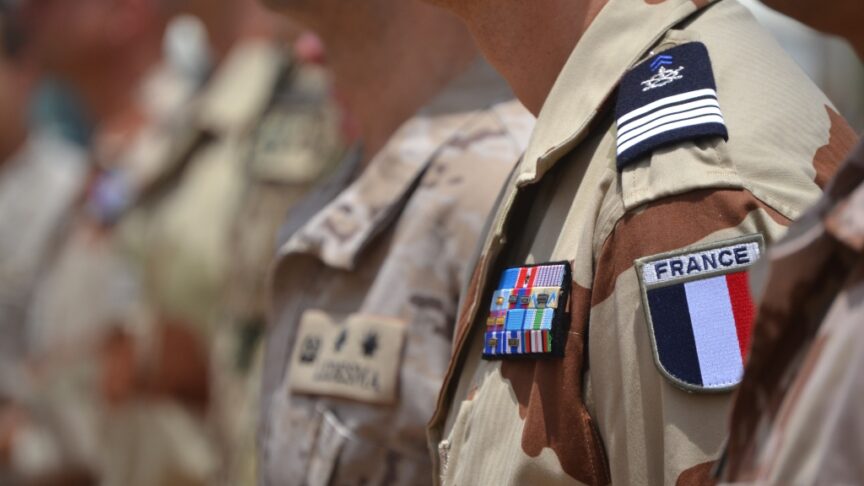
What does the end of Operation Barkhane in its current form mean for the Sahel?

Emmanuel Macron took allies by surprise when he announced the end of Operation Barkhane. But his new plans do not appear to offer the change of tack the Sahel needs
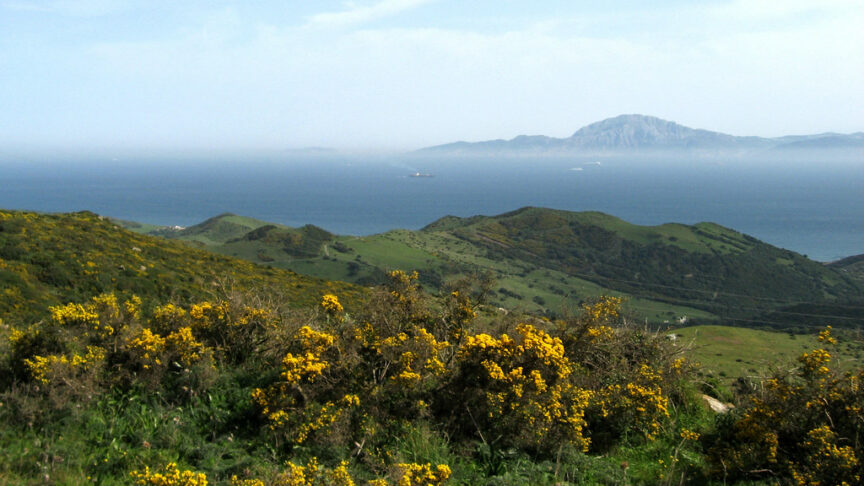
The EU cannot remain a passive observer on the Western Sahara issue. It should look to the EU3 model as a way to make progress
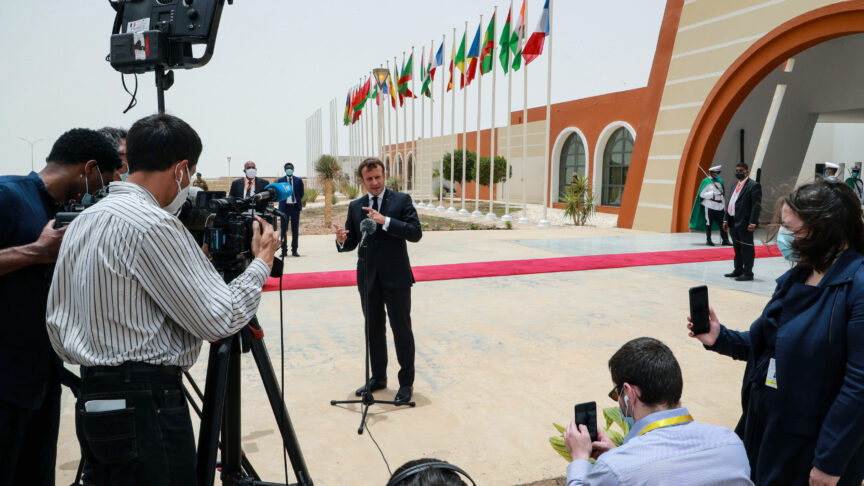
After the indifference of the Trump years, the Biden administration should broaden and deepen its cooperation with France in the Sahel
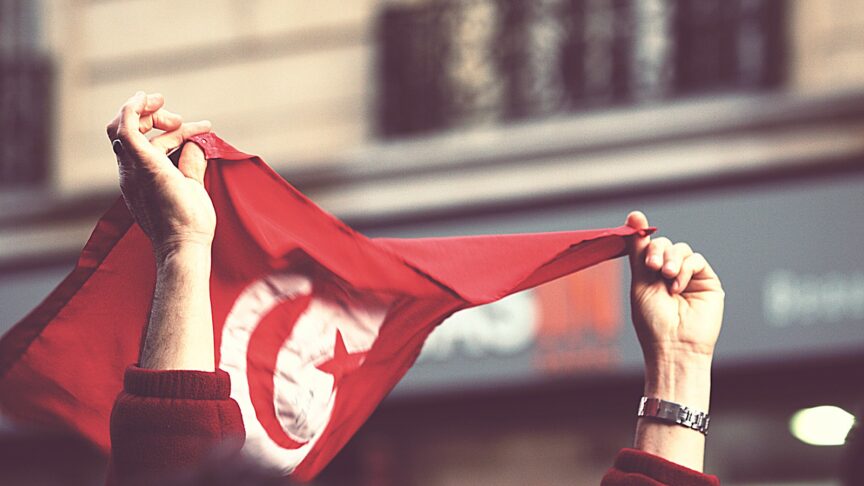
As economic hardship and political infighting persist in debt-laden Tunisia, the EU should raise its concerns about the escalation of violence in the country and work to prevent it from sliding back into repression

The Maghreb policies of the four most influential EU member states are diverging – but this fragmentation hinders the EU’s long-term interests in the region

The disasters that have struck Morocco and Libya in recent days demand an urgent response. Europeans have an imperative to act – but should bear in mind the political complexities underlying the provision of aid

Emmanuel Macron took allies by surprise when he announced the end of Operation Barkhane. But his new plans do not appear to offer the change of tack the Sahel needs

The EU cannot remain a passive observer on the Western Sahara issue. It should look to the EU3 model as a way to make progress

After the indifference of the Trump years, the Biden administration should broaden and deepen its cooperation with France in the Sahel

As economic hardship and political infighting persist in debt-laden Tunisia, the EU should raise its concerns about the escalation of violence in the country and work to prevent it from sliding back into repression
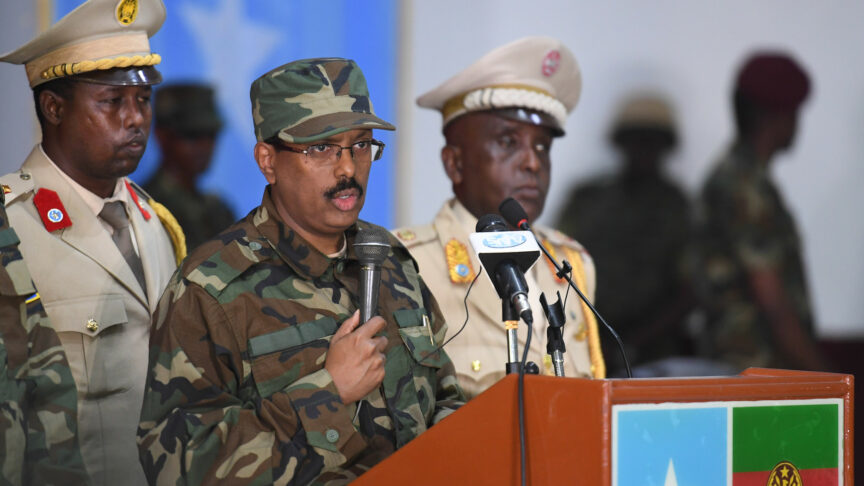
The EU can unblock the so-called “electoral impasse” paralysing Somalia by rejecting the involvement of the outgoing president. But it must also set out a new framework to help the country move forward
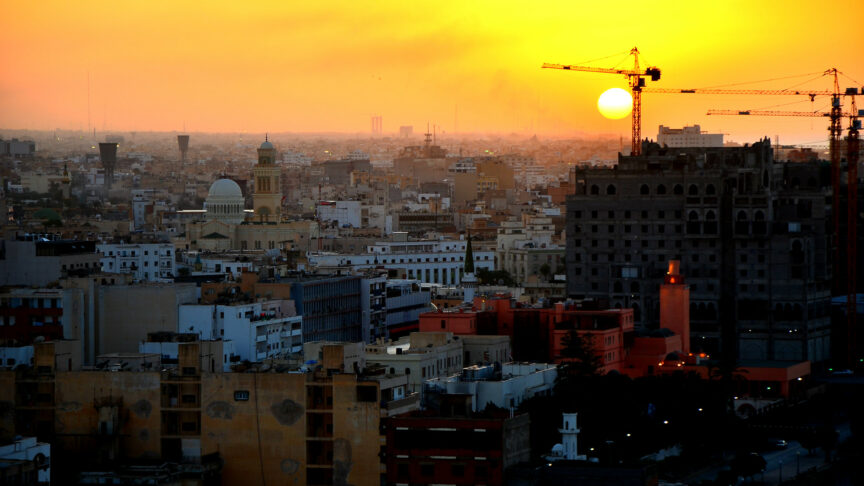
Europe should support the UN process in Libya by working to ensure that the country’s upstart new government focuses on preparing for and holding the general election in December
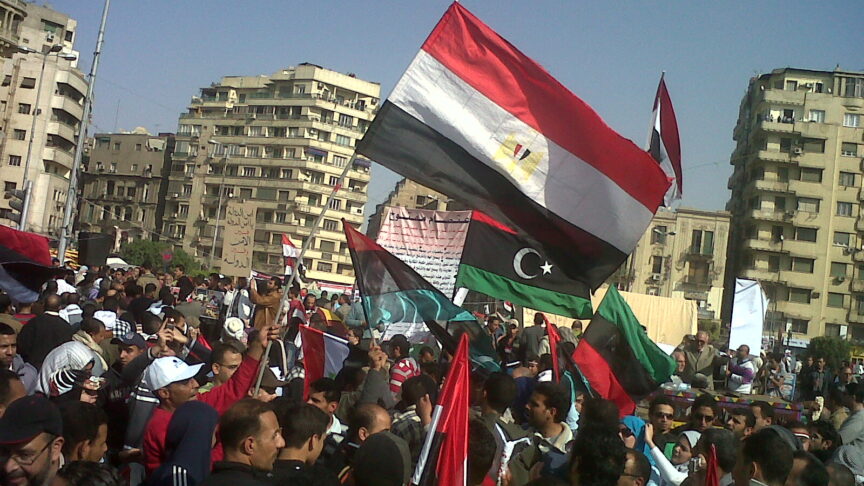
By facilitating a rapprochement between Cairo and Ankara, European governments could make progress towards their strategic objective of stabilising the Middle East and North Africa
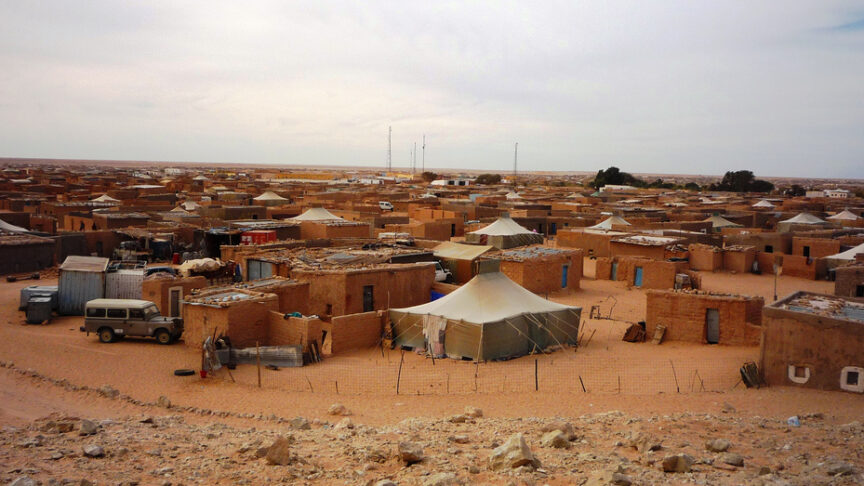
Europe has a legitimate interest in maintaining close relations with Morocco. But this should not come at the expense of its commitment to international law and Sahrawi rights
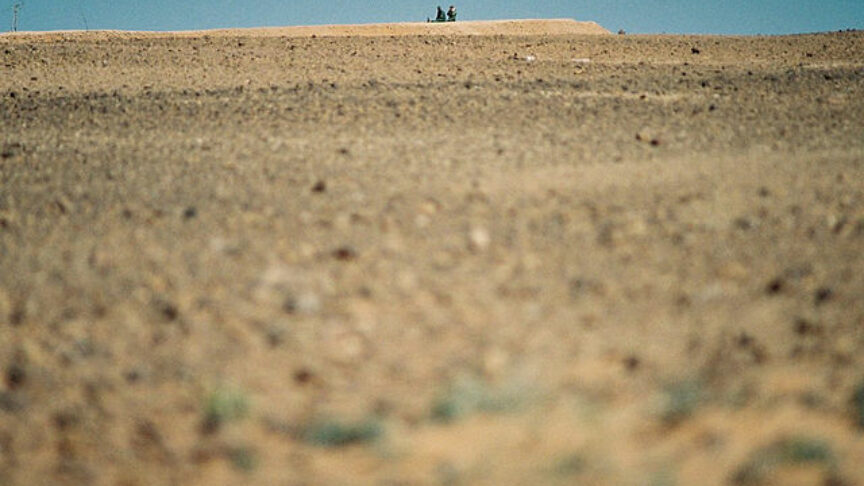
Fighters across the region may be drawn in if the violence continues, as has happened for years in Libya’s cascading internal and proxy wars

What does the end of Operation Barkhane in its current form mean for the Sahel?
The attempt of a peace process in Libya is facing several substantial hindrances, where a variety of actors keep on inducing significant upheavals in its…
Anthony Dworkin stands in for our usual host, Mark Leonard, to de-brief the Berlin Conference on Libya. Together with the ECFR’s experts Asli Aydıntaşbaş, Tarek…
Podcast de notre BCM du 5 mai « Quelle issue pour la situation en Libye ? » en présence de Tarek Megerisi, chercheur…
Mark Leonard speaks with Andrew Lebovich, Anthony Dworkin and Chloe Teevan, about what the demonstrators want, and EU-Algeria relations. Bookshelf: La Martingale Algérienne, Réflexions…
Mark Leonard speaks with Shoshana Fine and Andrew Lebovich about what is Europe trying to so in the Sahel. Bookshelf: The Good Immigrant by Nico…
Podcast de notre BCM du 9 octobre : « Les politiques migratoires et de sécurité de l’Union européenne dans le Sahel » avec Giovanni Faleg,…
Podcast de notre conférence du 1 octobre en partenariat avec l’Institut d’études de sécurité de l’Union européenne (EUISS) : « Russia and the Middle East…
Mark Leonard speaks with Julien Barnes-Dacey and Tarek Megerisi about the Libyan conflict, the impact of the Paris summit, and Europe’s fight over migration policies…
Is France alone in the desert? ECFR experts Julien Barnes-Dacey and Manuel Lafont Rapnouil discuss how France can lead Europe in the Middle East

L’evento si concentrerà su come Il settore privato costituisca una componente fondamentale per l’attuazione del Global Gateway e sulle opportunità che questo può rappresentare

La conferenza è l’evento finale del progetto “Rome Foreign Policy Club: Gruppo di riflessione strategica su Italia, multilateralismo e interconnessioni”, con focus sugli scenari globali e per il Mediterraneo allargato dopo l’invasione dell’Ucraina

A panel discussion organized in collaboration with the Regional Program Political Dialogue South Mediterranean of the Konrad-Adenauer-Stiftung (KAS) in the framework of the 8th edition of the Rome MED – Mediterranean Dialogues, promoted by the Italian Ministry of Foreign Affairs and International Cooperation the Institute for International Political Studies (ISPI)
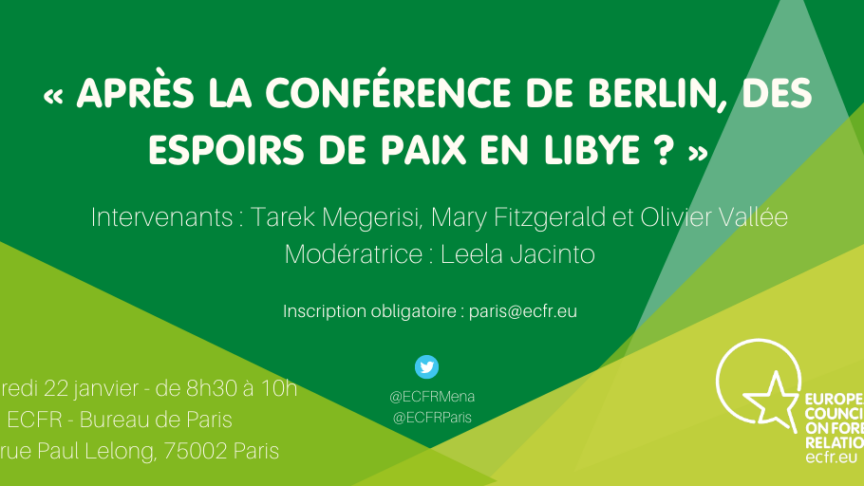
Nous avons le plaisir de vous inviter à un Black Coffee Morning en présence de Tarek Megerisi, Mary Fitzgerald, Olivier Vallée et Leela Jacinto
Following the recent publication of Order from chaos: Stabilising Libya the local way by Tarek Megerisi
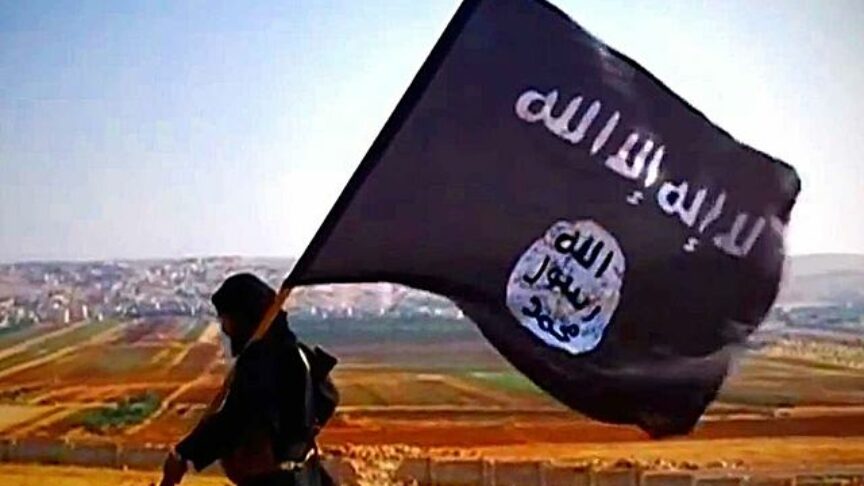
L'ECFR Paris a le plaisir de vous inviter à un nouveau BCM animé par Florence Gaub, Mattia Toaldo et Manuel Lafont Rapnouil
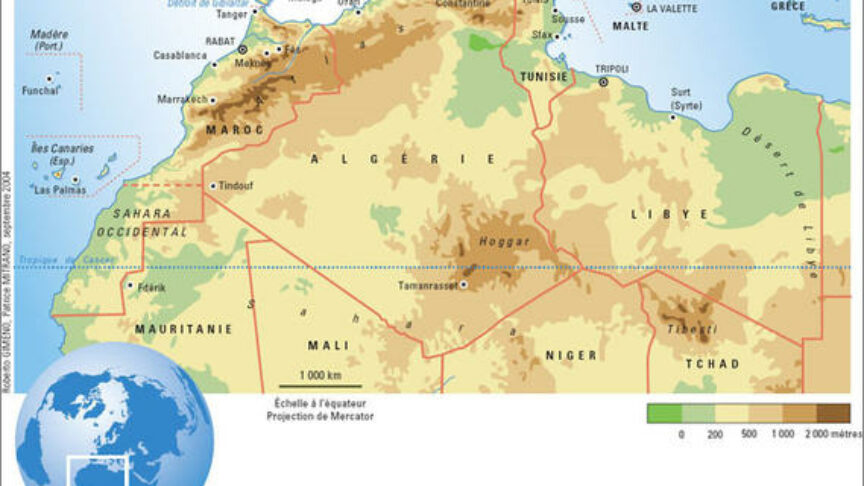
Avec Andrew Lebovich & Anthony Dworkin à l'ENS Ulm
Our panel examined the threats of terrorism to security and political stability in North Africa and beyond
Understanding oneself means to look at oneself from the view of others. The Maghreb region is a very crucial neighbourhood for the EU, yet little is known about their point of view. The region faces political, economical and security crises with instable governments, decreasing oil prices and terrorist formations. Europe has to engage more with these countries since it is clearly mutually beneficial. Furthermore, it would alter their view on Europe towards a more positive one. For that, the European Union has to encounter MENA countries on a level playing field.
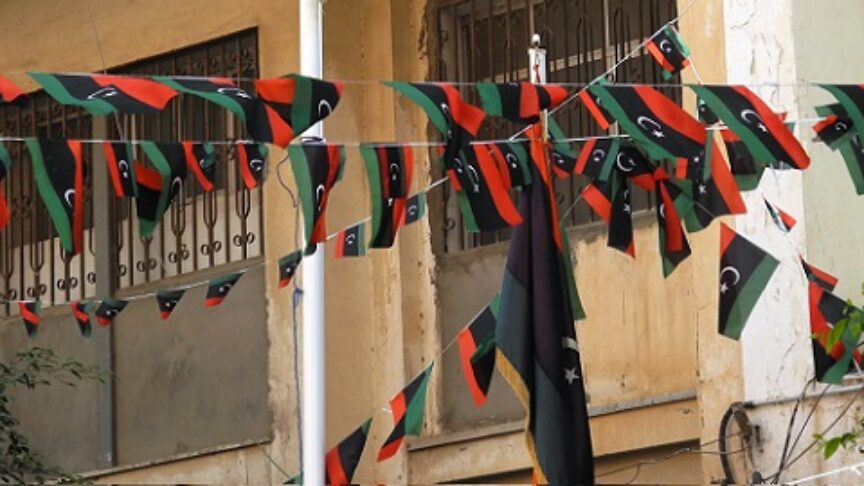
What can Europe can do to de-escalate the conflict in Libya?